Reboots: heresy or homage?

Hollywood is obsessed with reboots. Total Recall, Star Trek, Big Trouble in Little China (I’m gutted about that last one)! It’s wide open for debate as to whether all these reboots are a good thing, or whether people should stick to creating original stories. This practice has bled over to the gaming industry as well in recent years.
A chance to do it all again
At its best, a reboot can be an opportunity to produce a new experience that riffs on the nostalgia of simpler times, while updating gameplay and graphics to meet modern expectations.
The best example of a reboot that I’ve personally played is the outstanding X-COM: Enemy Unknown. Released in 2012, this title went where many had tried before, and brought 1994’s UFO: Enemy Unknown thoroughly up to date. Despite adding 3D graphics built on the Unreal engine, and a game completely built from scratch, XCOM 2012 somehow manages to be an extremely faithful reboot that not only keeps the tone and suspense of the original game intact, but also the dramatic difficulty curve and feeling that success or failure of your entire game is resting on a single mistake during a mission. The franchise has been totally relaunched now, spawning a separate update and full sequel, which has to go down as a huge success.
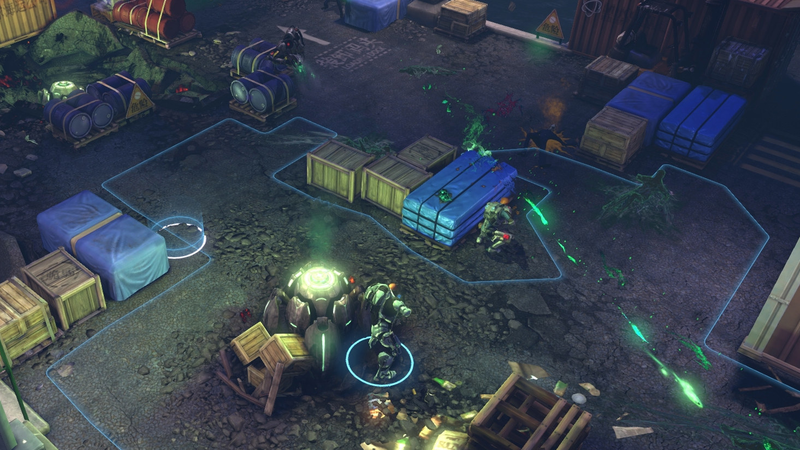
X-COM: Enemy Unknown - one of the best reboots in recent years
Motocross Madness is another great example. While this changed the majority of the elements of the game, it still managed to retain that sense of fun found through launching your cyclist high into the air and watching him crash to earth. If anything, it’s made slightly easier to stomach given the fact that the realistic rider of old is now replaced by your Xbox Avatar.
The new Tomb Raider released in 2013 was a thoroughly enjoyable game in my opinion. Now, I have to come clean. I wasn’t the hugest fan of the original games. I found the controls to be awkward and annoying. It’s extremely obvious that it’s basically been created off the back of the success of the Uncharted series (still one of the main reasons I would buy a PS4), but in my opinion is all the better for it. The control scheme is much more up to date and responsive, and the game includes a number of features which we, as modern gamers have come to expect as standard (cover, melee finishers, climbing/mantling obstacles, collectables etc.).
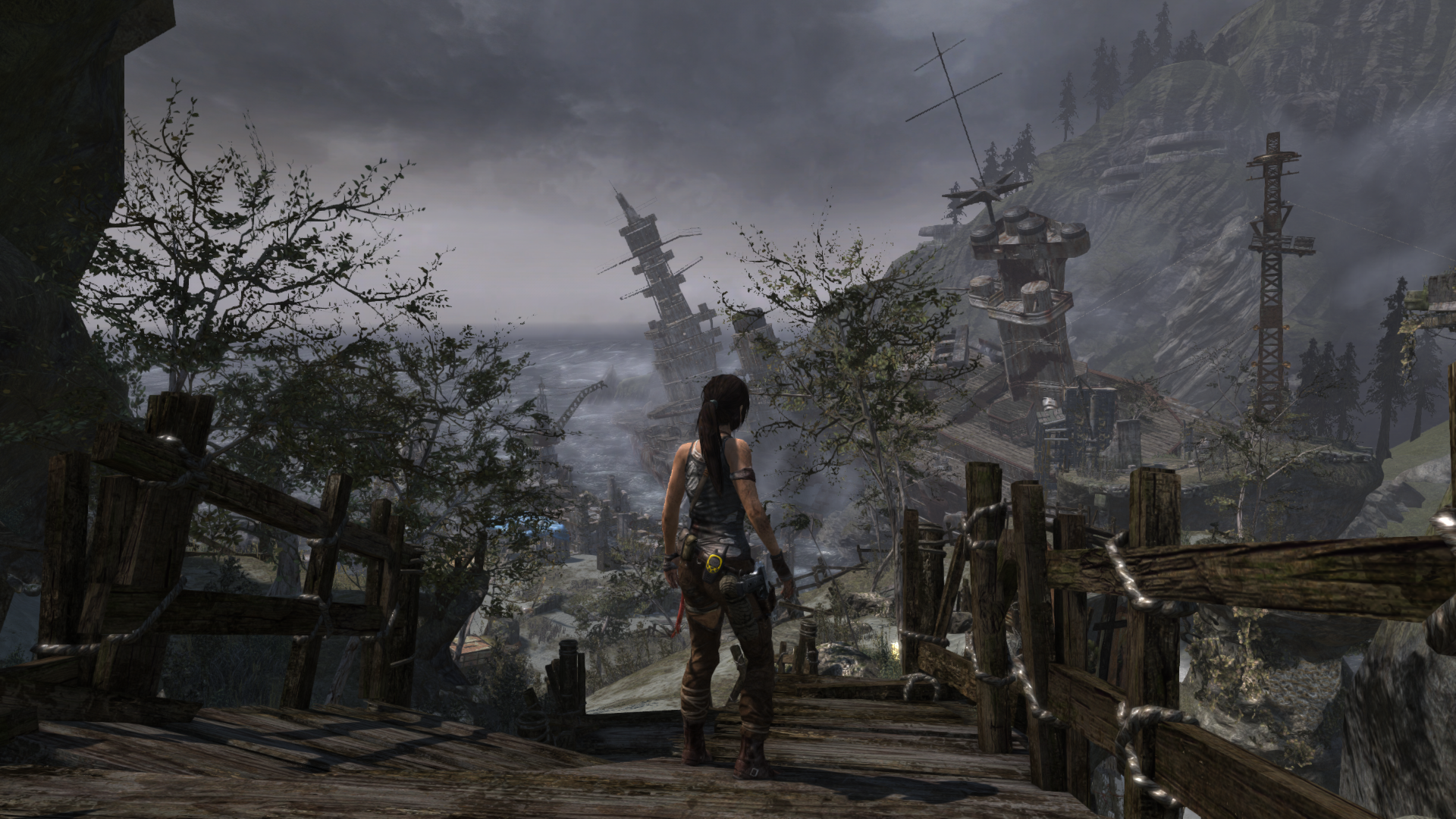
Tomb Raider brought a flagging franchise back to life with a new, modern take on the series, clearly inspired by Uncharted.
The recent Doom reboot was well received, and quite cleverly timed, given the slightly stale nature of an FPS market dominated by ultra-military-themed modern day and near-future shooters. Going back to fast-paced, alien/demon slaying neon projectiles and double-jumps is a throwback to the golden era of FPS, before this obsession with “realistic” shooters came along.
Killer Instinct is another good example of a title that has received the reboot treatment and prospered for it. Microsoft’s decision to re-introduce Rare’s fighter as a seasonal game full of micro-transactions could have massively backfired, but seems to have garnered a dedicated following and kept gamers coming back for more, while maintaining generally favourable reviews.
Resident Evil 7 brought even more hope that reboots can be a good thing. Newer entries in the series have focussed more on action, and eschewed the traditional survival horror feel. Series stalwarts hold the old games up as gospel, but revisiting them now shows that the controls don’t hold up to modern expectations. But Resident Evil 7 hit stores last month and has been widely praised. Instead of going bigger and bolder, Capcom have scaled the game right back, and focused on the sheer horror aspect of creepy environments and characters, and a feeling of vulnerability. There’s no doubt some inspiration taken from Alien: Isolation there, and the game (and series) is all the better for it.
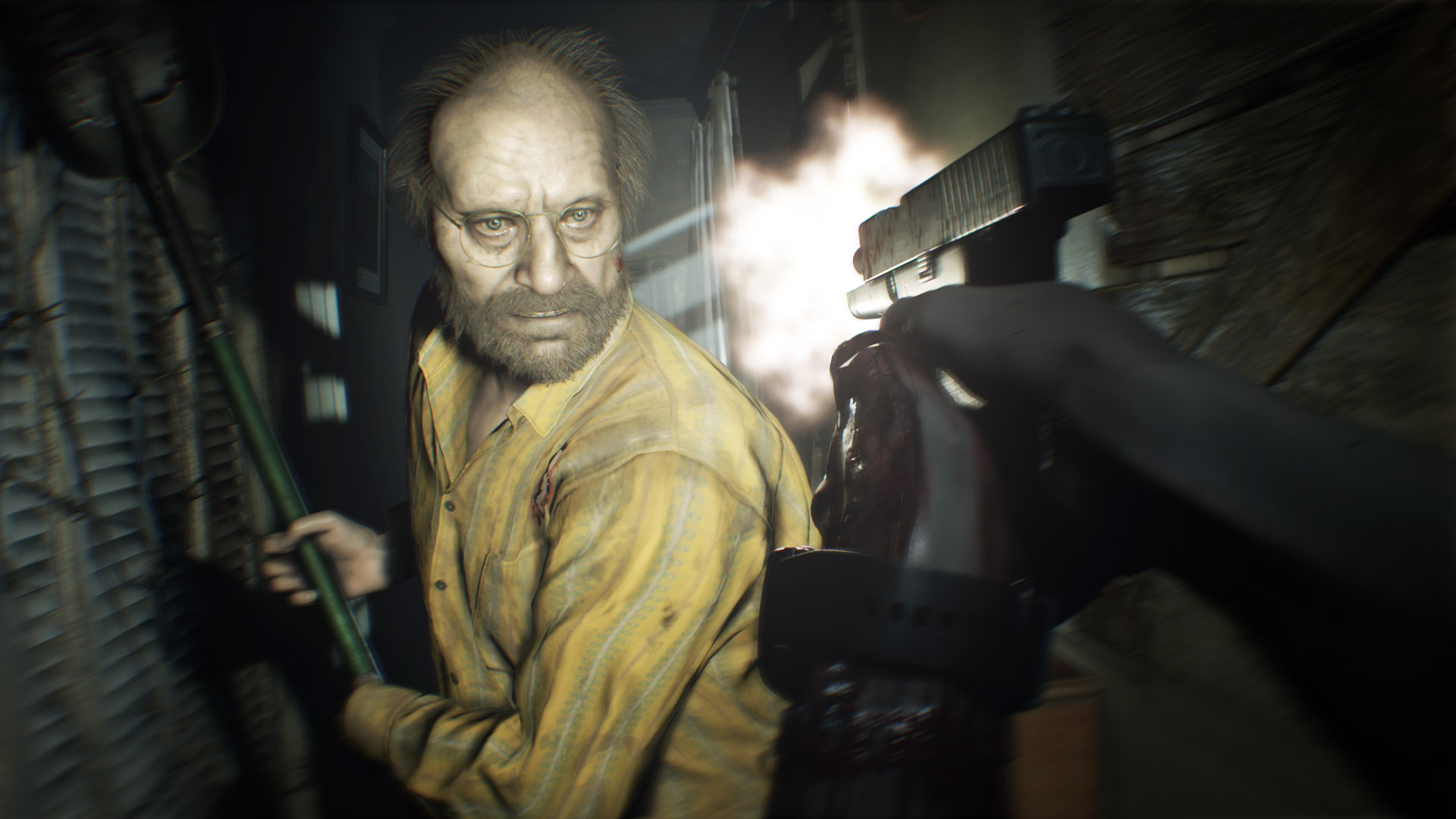
'I told you to stay in your cupboard, boy!'
So although the initial reaction to the thought of yet another reboot is usually one of knee-jerk negativity, there have been some great examples in recent times that have built on the strengths of the original titles/series.
Standing on the shoulders of giants
However, there’s a flip side. At its worst, a reboot can be a shameful cash-in, attempting to take those precious memories and tear them asunder. I like to think that these are the same people responsible for releasing all sorts of bargain basement, half-arsed PC shovelware, but some are AAA titles that just horrifically miss the mark.
2015’s Need for Speed reboot was ripped to pieces by critics and passed over by most gamers. It’s perhaps no surprise that it hit the EA Access Vault so quickly. Mind you, the series wasn’t exactly the strongest source material to begin with. Last year’s Carmageddon: Max Damage was sadly panned, putting the final nail in a once excellent series.
Star Wars: Battlefront was a very interesting reboot example. Let me just say that I am a big fan. I still jump into it for a game every now and then. It has that trademark DICE feel to the gameplay, with epic moments everywhere, but with an arcadey feel over the top to entice the slightly more casual gamer. However, lots of people disagreed. The hardcore complained that it was too casual, not having aiming down sights, and other Battlefield mechanics. The anti-Battlefield crowd wrote it off as just Battlefield with a Star Wars skin (a very unfair comparison in my book). And long-time fans of Battlefront complained that it didn’t have the depth of the older games, and pointed to the lack of space battles as a complete cop out.
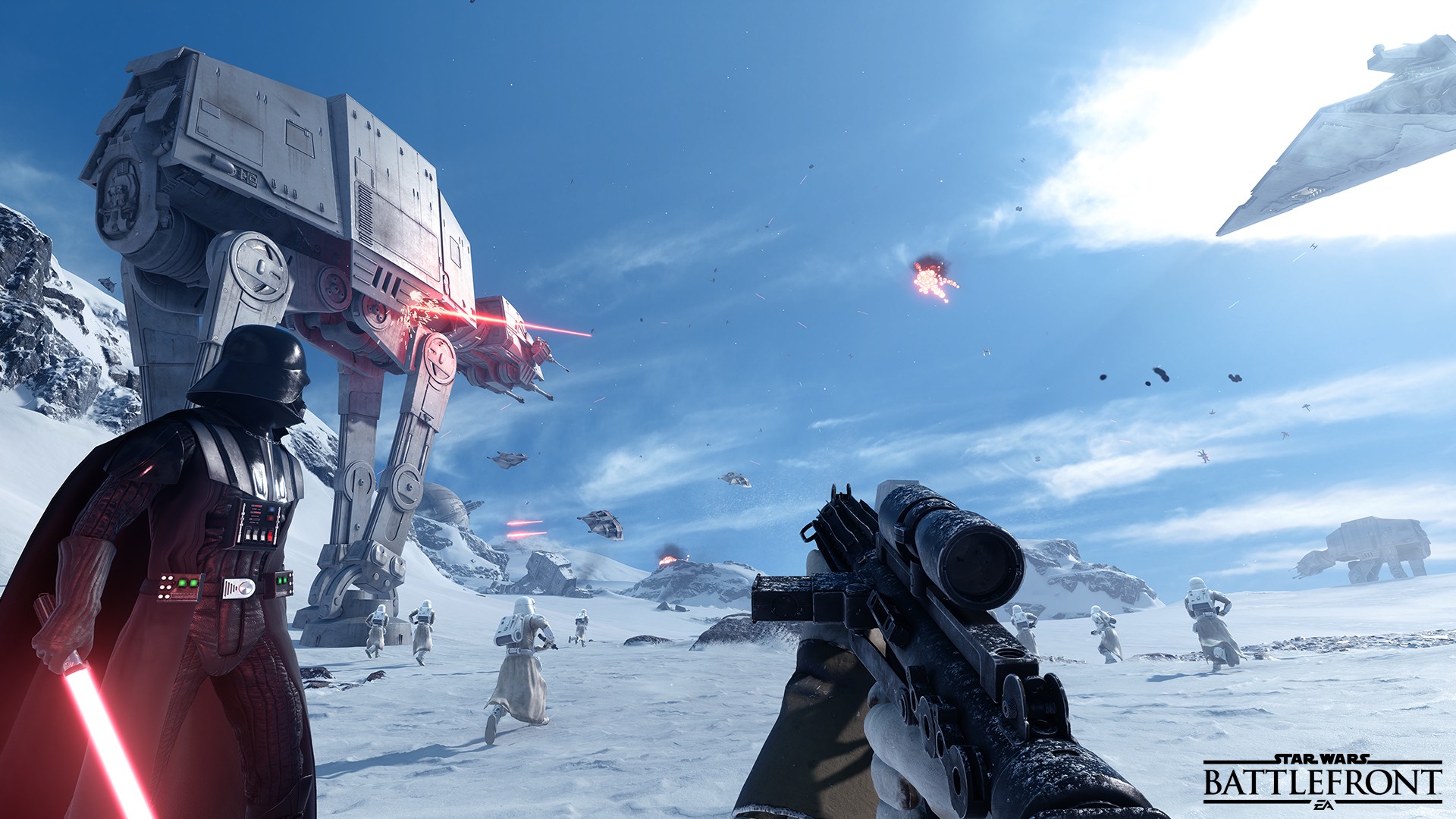
DICE perfectly captured the feel of Star Wars in their vision of Battlefront, but some long time series fans were upset with the game.
However, it’s important to remember that without DICE and EA, there would be no new Battlefront at all. It may not be the same as the older games people remember, but it is a thoroughly impressive title in its own right, and deserves to be evaluated on its own merits.
I haven’t played it, but I’ve read a lot of bad press for Star Fox Zero. It appears to have hit that danger zone of being too similar to the originals but completely missing the point of what made Star Fox and Lylat Wars so good.
Of course, we can’t talk about reboots without mentioning the daddy of them all. After a colossal 15? years in development, Duke Nukem Forever (without the Forever) finally hit the shelves and was a complete and utter disaster. After 15 years of development, I imagine the publishers just wanted to ship something, and consequences be damned.
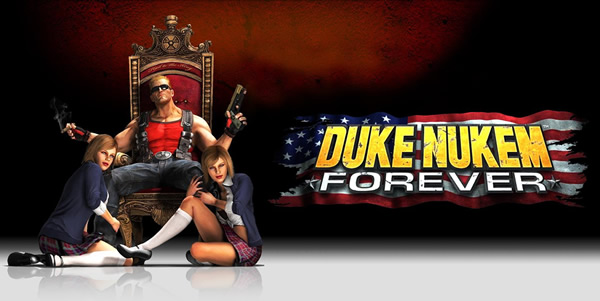
Some things are dead for a reason...
As with new IPs, piss poor reboots can of course completely flop in their own right, but for us gamers, a shoddy reboot can really sour the memory of the original series. Perhaps studios see it as a lower risk to ship a low-budget reboot rather than a new IP, but I personally find it sad that the series’ that shaped our formative gaming years are not treated with due care and attention by the publishers in charge of their rights.
Upcoming Reboots
The reboot train isn’t stopping anytime soon, but there is some hope on the horizon. The original Unreal Tournament was an incredible FPS, and one of the best of its generation, although a number of sequels and spin offs unfortunately lost their way. Still, it’s not all bad, as Epic pushed on and shaped the seminal Gears of War a few years later. The new UT title (now in pre-alpha) is likely to gain some traction given the recent success of Overwatch, and even the likes of Doom.
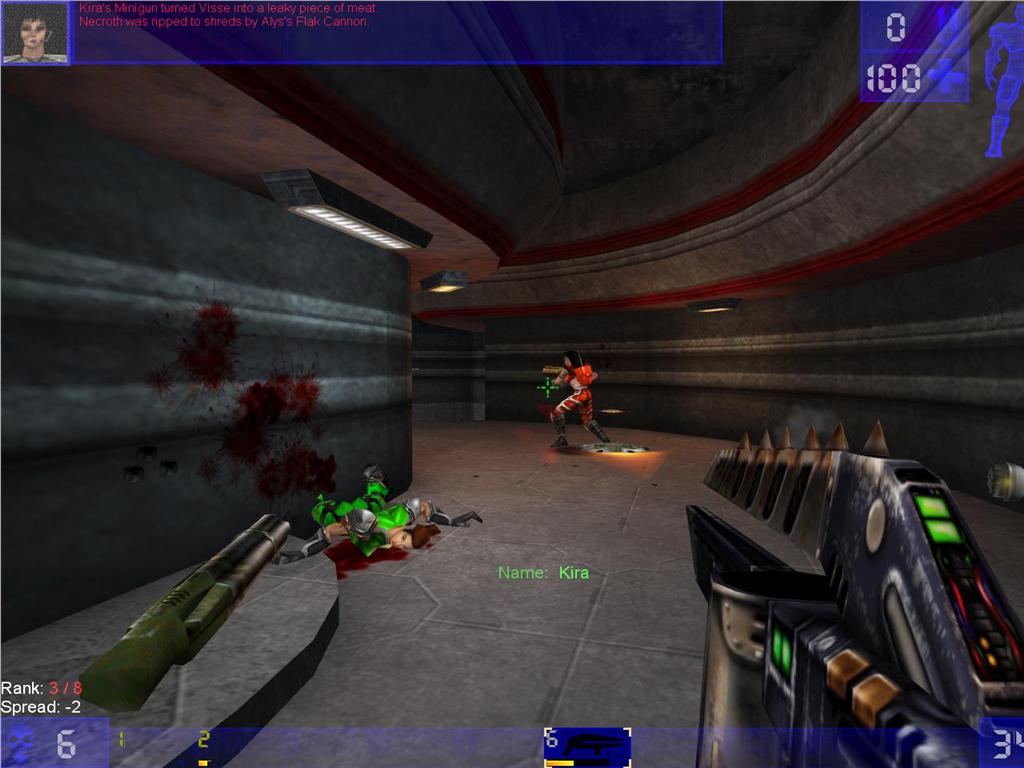
'M-M-M-M-Monster Kill!' - Unreal Tournament was incredible in its day and it will be interesting to see if Epic can recapture this glory.
Rumours of a new Timesplitters game seem to surface every year or so, and while fan project Timesplitters Rewind is looking to resurrect the multiplayer component of the series, a true sequel has never quite materialised.
There are plenty more titles due for the reboot treatment over the coming months and years, not least Crackdown, Prey, Quake Champions, even ToeJam and Earl are making a return!
Summary
Given the proper care and attention, reboots are a great way to reinvigorate an old franchise and introduce new fans at the same time as reigniting old passions. As with most things in life however, there are those looking to make a quick buck at the expense of nostalgia.
So I leave with one simple plea to developers and publishers out there: Treat our memories with care!
Let me know in the comments below about your experiences of reboots. Have you enjoyed any? Which have you hated? Do you think reboots are evil or do they have a place in modern gaming?